An important conversation between J. Robert Oppenheimer and Albert Einstein is mentioned several times in the course of the film. When the conversation occurs, we don’t know what the scientists talk about. However, in the end, the conversation is revealed, and it has a deep significance and philosophy attached to it.
Christopher Nolan’s latest work explores the life and work of J. Robert Oppenheimer, the physicist who led the development of the atomic bomb. Additionally, the film explores the rivalry between Oppenheimer and Lewis Strauss, the chairman of the AEC, who tried to ruin Oppenheimer’s reputation after being outsmarted by him.

The film also examines Oppenheimer’s moral dilemma regarding his role in The Manhattan Project. His conversation with Albert Einstein in the final scene aptly conveys the film’s message.
Lewis Strauss’ relationship with Oppenheimer begins deteriorating after Strauss assumes that Oppenheimer said something about him to Einstein. When Oppenheimer first comes to the AEC, he speaks to Einstein, but the details of the conversation are not revealed. Immediately after, Strauss tries to greet Einstein but he ignores the chairman.
This leads Strauss to believe that Oppenheimer must have said something negative about him to Einstein, which is why the scientist ignored him. This works as a catalyst in straining Strauss and Oppenheimer’s relationship.
In the final scene involving Strauss, his Senate aide suggests to the AEC chairman that he might be misinterpreting the conversation between Einstein and Oppenheimer. The aide implies that Strauss is being overly paranoid and self-centered and that the two physicists were not even talking about him. At this point, the film finally reveals the actual content of the conversation between Einstein and Oppenheimer.
The fabled conversation takes place after the completion of The Manhattan Project. Einstein and Oppenheimer were actually discussing Oppenheimer’s inner conflict and dilemma with regard to the creation of the atomic bomb.
Oppenheimer tells Einstein that he is afraid that his creation of the atomic bomb will lead to a dangerous chain reaction, where other nations will try to outdo him by creating an even more dangerous bomb. This, in turn, will lead to the creation of more and more nuclear weapons and the destruction of the world.
In the end, Einstein asks, “What of it?” and Oppenheimer says, “I believe we did,” indicating that the chain reaction has already begun. Oppenheimer’s words hint at the creation of modern nuclear weapons, how it is leading to a major nuclear war and, eventually the end of the world. It is the situation that Oppenheimer had been dreading since the beginning.
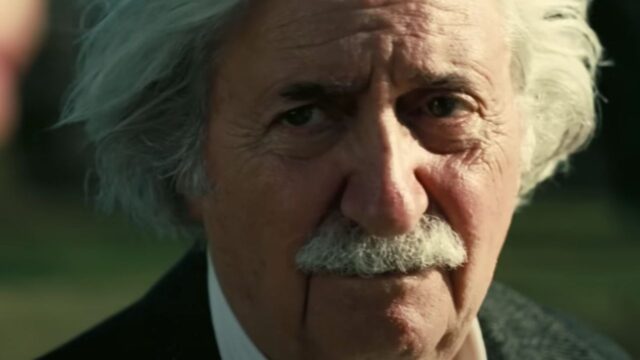
Oppenheimer led The Manhattan Project because he wanted the U.S. government to have the atomic bomb before the Nazis. He would rather have the U.S. government use it than Hitler’s Nazi Germany.
He competed with Germany to make the bomb and succeeded. But he understood that he had caused a situation where every country would have their own nuclear weapons, leading to a deadly nuclear war.
Oppenheimer did not end the war with his atomic bomb but rather accelerated global competition in nuclear weapon development. He realized that other countries would soon learn how to make powerful bombs with atomic and hydrogen fusion.
After the film’s events, Oppenheimer became a vocal opponent of nuclear weapons, especially the hydrogen bomb, which was developed by Edward Teller, the Hungarian scientist who testified against Oppenheimer during his trial. The final line of the film, “I believe we did,” is a chilling echo of Oppenheimer’s famous quote: “Now I am become Death, the destroyer of worlds.”
About Oppenheimer
Oppenheimer is a movie written and directed by Christopher Nolan. It’s based on the Pulitzer-winning book ‘American Prometheus: The Triumph and Tragedy of J. Robert Oppenheimer’ by the late Martin J. Sherwin and Kai Bird. The movie is produced by Nolan, his wife Emma Thomas and Atlas Entertainment’s Charles Roven.
J. Robert Oppenheimer was a theoretical physicist who is now considered the Father of the Atomic Bomb. He was responsible for the research and development of the first nuclear bombs, later called the Manhattan Project.
The biographical movie by Nolan sees Peaky Blinders’ star Cillian Murphy essaying the lead role of J. Robert Oppenheimer. The movie released in theaters on July 21, 2023.
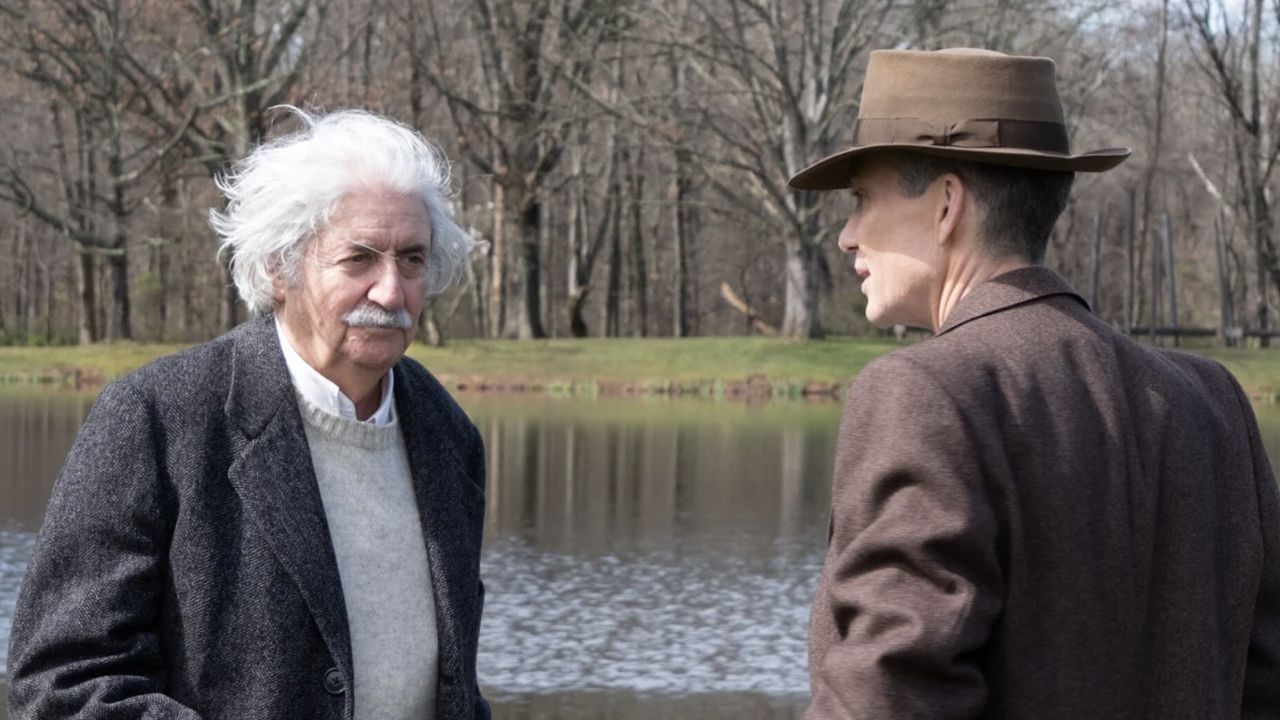
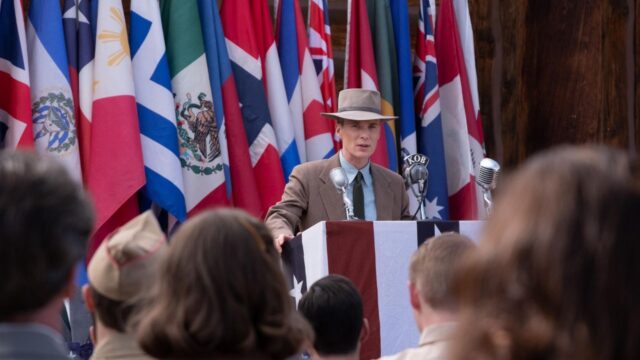



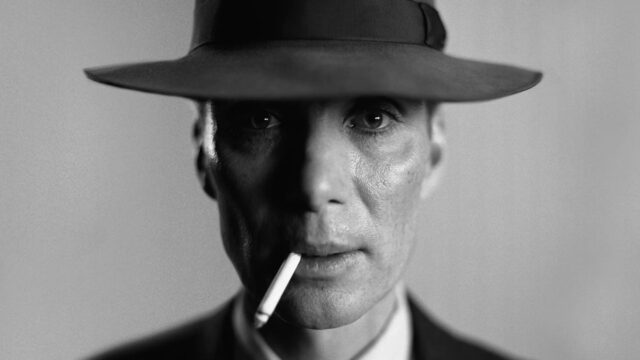
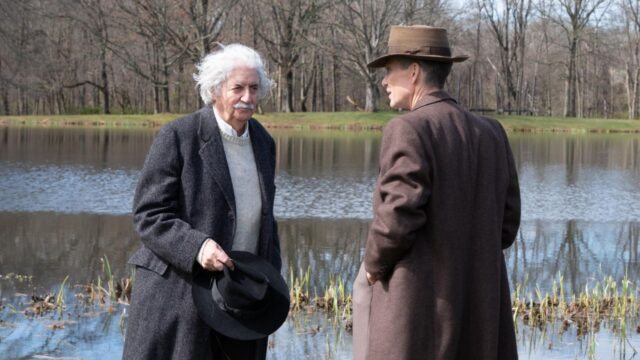

No Comments on Oppenheimer’s Confession to Einstein & What it Means in the Film